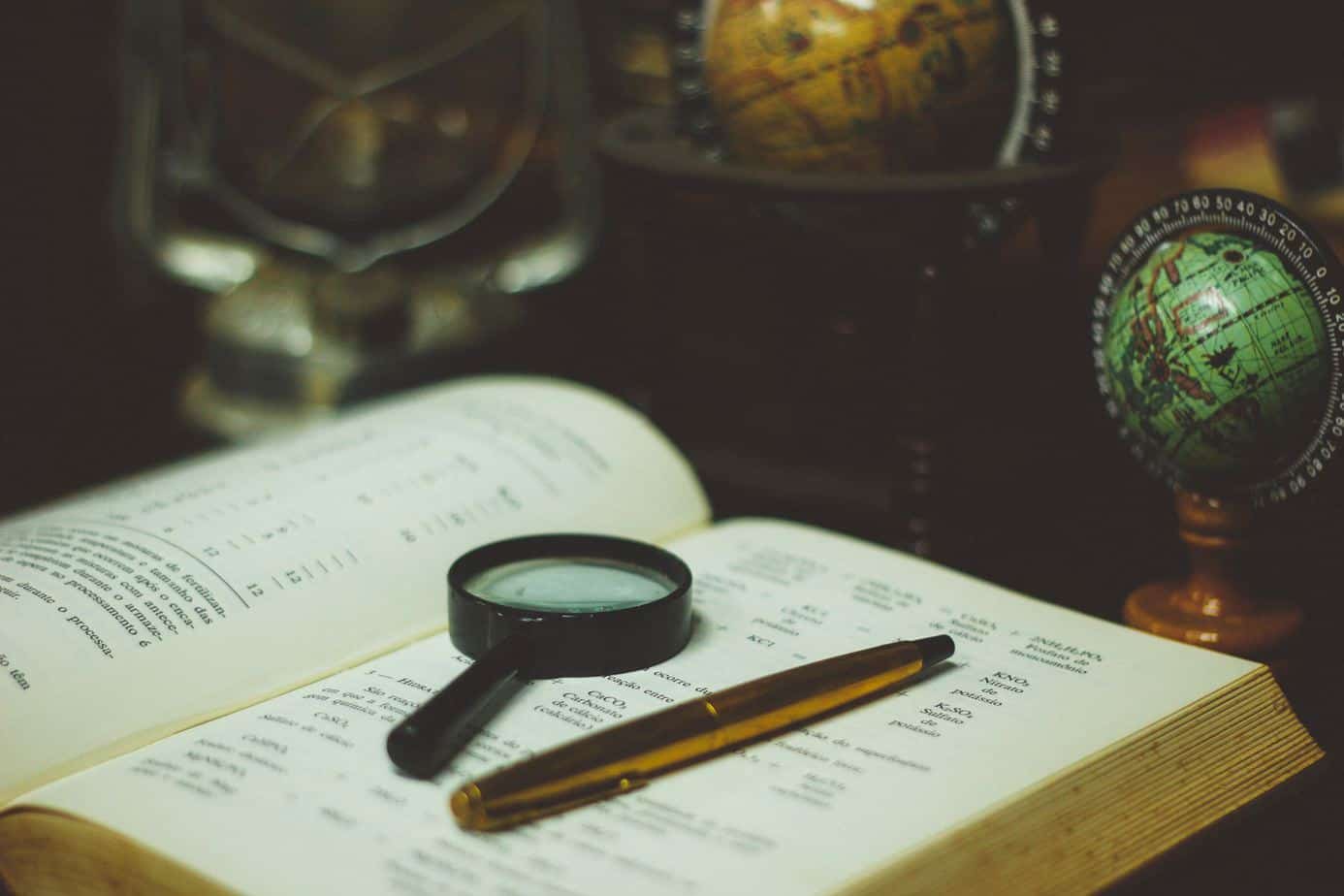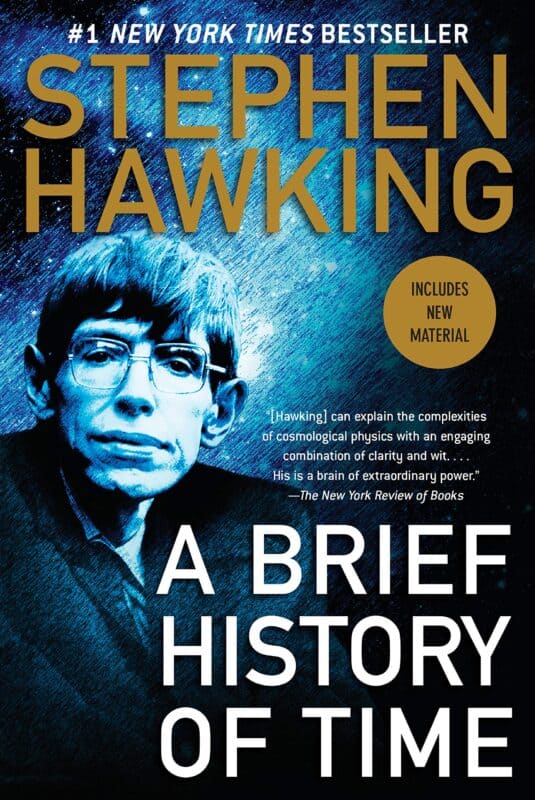Have you ever done this experiment with your friends? I don’t remember which time travel book series I’ve read about it but it goes something like this:
You declare that if one of you ever creates a time machine, THIS is the time and place you’ll first visit. And you wait.
The concept of time travel has been a major theme for many science-fiction films. From “Back to the Future” to “Interstellar,” intricate and fascinating movies have been created using some sort of time-bending.
But when it comes to literature, I wasn’t aware that it is filled to the brim with time travel books that take advantage of the complex plots this scientific theory generates.
Together, we’ll discover some of the best time travel books that cleverly use loops, causality, and relativity.

10 Popular Time Travel Books
Quick heads up. I’m looking for good books about time travel that use time as a way to tell a story.
Meaning, they’re great novels that are consistent but don’t use gimmicky plot devices as an easy way out. Let’s begin!
1. “Harry Potter and The Cursed Child” by J.K Rowling
If you’re a fan of the HP franchise, you’ll hate or love this one.
It uses the “time turners” you’re already familiar with from the 3rd books of the original series to explore…
Well, I don’t want to reveal a lot because I’ll ruin the whole thing. You’ll get to discover some “old” friends (or enemies?) and meet some new ones.
There’s a sense of nostalgia throughout the book but it can be read as a standalone. Don’t bother to read the reviews. You’ll get confused. Keep an open mind and give it a shot!
2. “The Wheel of Time” by Robert Jordan
A lot can be said about this book series. Book 1, “The Eye of the World” is one of the best time travel books and that’s because it uses the concept in an exceptionally subtle way, without relying too much on it to narrate the story.
You’ll find that it’s a dense and complex, high fiction novel that can only be topped by Tolkien’s trilogy.
If you like this genre, I bet you’ve already read this. If not, this is perhaps the best introduction.
A word of caution: Read one and you’ll read all of them. And that’s about 15 books, 4.5 million words. You’ve been warned.
3. “11/22/63” by Stephen King
Stephen King always delivers and “11/22/63” is no exception.
Have you ever considered what would happen if you went back in time and tried to change the course of history?
Most people say they’d try and kill Hitler.
King plays with JFK’s assassination and places the protagonist 50 years in the past, through a portal, to prevent it.
Besides the cliff hangers and filled with action pages, the book gives you a glimpse of the concept of the “Butterfly Effect” and how one action can change the course of humanity.
4. “A Connecticut Yankee in King Arthur’s Court” by Mark Twain
An ingenious, satirical book by one of the greatest writers of all time. Mark Twain will hit you from all different angles, sparing no fragile ideas or misconceptions.
This medieval tale places a “Connecticut Yankee” in the courts of King Arthur. The age of chivalry and honor.
But the poor fella quickly realizes the misery and suffering of the people in the dark ages. And he tries to help them only to realize the brutality of a monarchy.
At the same time, the author holds no punches when it comes to his own age, criticizing capitalism and highlighting the shortcomings of the industrial age.
5. “Outlander” by Diana Gabaldon
The story of a woman, traveling back in time, to the Scottish highlands and the war between the different clans.
One of the best-selling book series of all time, “Outlander” is a time-traveling book series that combines many different genres and elements. From historical fiction to romance to fantasy.
But, at the core of it, it’s a realistic view of war, love, and passion. Gabaldon has a deep understanding of human nature and it shows every turn of the page.
(I’ve heard the TV adaptation is quite good!)
6. “The End of Eternity” by Isaac Asimov
One of the most popular time travel books. And perhaps one of the best science fiction books period.
Its premise is that an organization existing out of time tries to steer reality to a better future by influencing the past. Asimov cleverly explains the concept of time travel and its implications, using his brilliant plot.
As a personal note, I have to say the last few pages are a testament to the author’s ability to deliver a powerful message, without being “preachy”.
7. “Timeline” by Michael Crichton
The author of “Jurassic Park” is known for using technology and how we interact with it as humans.
This book is no different. It delivers a thrilling adventure while exploring concepts like the multiverse and quantum leap.
In its core, it’s an action-packed novel, with fast-paced and simple prose. How can a bunch of students save their professors from the dungeon of a 14th-century castle in France?
I reckon this is a story most of you will enjoy. And it has a surprising ending, similar to the one in the aforementioned book by Mark Twain.
8. “The Time Traveler’s Wife” by Audrey Niffenegger
A fresh perspective on time travel and its implications to those around us.
I can’t say enough good words about the plot. You’ll follow a man that is forced to time travel and his wife that patiently tries to accept his husband’s many “weird” absences.
A mix between romance and science fiction, the book delivers an uncanny love story, with a gut-wrenching ending. You get to witness the human side of science fiction.
(Hey, this is George from the future! Turns out you bought the book and you loved it. Plus, you’ll win the lottery. See ya.)
9. “A Brief History of Time” by Stephen Hawkings
Ugh, I know. Even though “time” is in the title, this particular book isn’t specific to time travel.
But it doesn’t sit right with me to finish this list without presenting you with a book that covers the scientific principles that might or might not make time traveling possible.
And who’s better to explain these than Hawkings?
In the updated version, the celebrated physicist explores wormhole and time travel, shedding light on the possibility that one day we might be able to accomplish time-bending.
Spoilers: It is possible. Theoretical physics allows for its existence but we don’t have a practical solution (yet) to overcome our technological limitations.
10. “Sapiens: A Brief History of Humankind” by Yuval Noah Harari
Last but not least.
We already have time machines. They’re called books. They allow us to visit the past and the future.
We can talk with great men and witness the fall of great civilizations. We can visit the bronze age or use our intuition to jump to 3000 AD.
“Sapiens” is the perfect example of that ability. And the narrator is the perfect guide for your travels.
You’re holding a time machine. Use it.
Books work like portals to different dimensions. Be it novels or history books, you get the chance to experience different periods, different worlds entirely.
The idea of time travel is relatively new in literature but in a sense, humans have been time traveling for 100s of years.
Information is so fast and abstract it breaks the barriers of time and space, remaining unaffected by their laws. The moment we were able to speak, our message echoed through the ages.
So, the next time you hold a book in your hands, pull the trigger and travel wherever the author takes you. -G.K
P.S- It’s 3/11/2019. 7:39 PM.
I’m just polishing up the post before sending it over. I think this is the best time to try our little experiment. Let’s do it together.
Remember how it goes? Read these lines and look to your right: “If I ever create a time machine THIS is the time and place I’ll first visit. Right now. While I’m reading this.”
7:40 PM.
Well. That’s interesting…
About the Author
George Kourakos is an ad-man by day, a writer by night. He is a mathematician with a creative side. Working full time as a copywriter, George wants to explore his creative side by writing about his favorite topics.













